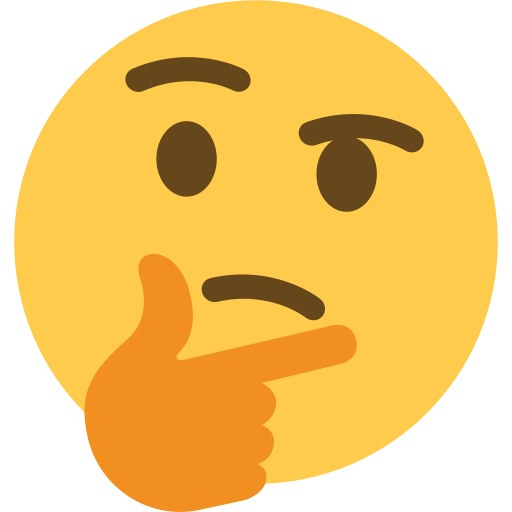
oierem
Members-
Posts
532 -
Joined
-
Last visited
Everything posted by oierem
-
No. All the music was recorded at the same time, around Christmas 79, long before any additional shots.
-
The bomb did what it was obviously going to do: cause the actual Incident that required the building of the hatch and the 108-minute button. It's another example of the dramatic irony of characters trying to change the past, only to make it happen. (Miles actually questions whether they're going to cause the incident in the S5 finale).
-
Of course not. Williams recorded the music months before, around Christmas 79! When they added the three new shots for the June 80 release they just tracked a few seconds of "Yoda raises ship" to the beginning of the scene.
-
As I'm sure you know, KotKS was NOT filmed entirely in California.
-
Nice try! For some reason, I always thought that the cut portion of Lament (which features the "Dies Irae" motif for Anakin) was meant to play over shots of Anakin marching towards the Temple... but who knows.
-
The original Lament cue is about a minute longer than the final edit of the scene, so it's possible that the little scene with the Emperor giving the order happened originally in the middle of the montague. (Similarly, the Making of book specifically mentions Williams and Lucas spotting music for the scene of Anakin marching towards the Jedi Temple with the clones, which has tracked music as well).
-
Actually, the last bit of footage for ROTS was shot in January 31, 2005, as the recording sessions were about to begin, but it consisted of a few specific shots only. As you say, all the new scenes were shot before Williams spotted the film. But yeah, all the tracked music in the prequels was pre-planned and had cue numbers. Many of the scenes were still not completed, but it's hard to know the reasoning behind the tracking of 4m2 in ROTS, or Anakin's post-nightmare scene in AOTC. In any case, there was no music composed for those scenes.
-
Chronologically, that doesn't fit really fit. The accident happened July 1982 (and around that time Lucas learned that his wife was going to leave him). By that time, however, the plot for Temple of Doom was firmly in place: the story conferences and story treatment happened in April 1982. And by July, the first draft was almost finished. All the elements of the final movie were there from the beginning. The accident (and Lucas' divorce) may have had an effect on the final result of the movie, with both Lucas and Spielberg being in a dark place, but it definitely didn't originate any story elements.
-
That's right. The fact is that GRRM is unable to bring his story to an ending. The way the story has grown, it's literally impossible to finish it in any decent way in two more books (I can't believe how people who think the final seasons of GOT were rushed can't see this: there were three GOT seasons after season 5, whereas there are only two more books after book 5!) Whether you liked the ending of GOT or not, the truth is that they managed to finish the series. As it is now, GOT has clear first, second and third acts. ASOIAF currently is somewhere towards the middle of the second act, with a huge amount of characters and storylines. It would need at least three or four more books (and many convinient twists) to wrap it all up.
-
-Dobby's theme is barely there in the film at all because the first big statement is unused (because it really doesn't fit the scene) . And as for his last scene you just hear a very brief and disguised statement of the theme. -Lockhart's theme only appears in three of his many scenes (and they are straightforward reprises, without much variation) -The Chamber theme is the big offender, because it should've been used instead of the three-note motif from PT every time it appears. But even if I get why some of the themes where not more frequently used (Dobby or Fawkes only appearing in a handful of scenes), the fact of the matter is that the film has no new clear thematic identity and keeps reprising material from the first film. And not just thematic material, but straight copies of underscore. (and of course, the fact that most of the climax uses tracked music....)
-
What do we know about JW's new main titles for The Phantom Menace?
oierem replied to artguy360's topic in JOHN WILLIAMS
In my opinion, the "theme associated with the Rebels" isn't really associated with the Rebels at all (except for its very first appearance), and it's actually a theme for our heroes of the story (and strongly associated with the Falcon). -
Fantastic Beasts And Where To Find Them 5-film series
oierem replied to Bilbo's topic in General Discussion
Order of the Phoenix and Deathly Hallows 2 are among the best films of the saga, in my opinion. But Yate's directing is always horrible when it comes to blocking (as others have said, everyone just stands around looking bored) and editing (lifeless and slow).- 3,311 replies
-
- Upcoming Films
- Movie Talk
-
(and 2 more)
Tagged with:
-
He also says that "low below" is Hook's theme.
-
Then I would consider it a lazy effort, and a "partly unispired" score (I'm strictly referring to the parts that aren't original). Williams is known for writing very original and interesting sequel scores (as well as some clearly unoriginal ones, I know). It's hard to say what would've happen if he had had enough time to write Chambers properly. But I can't truly say the Chambers score, as a whole, is a great one because it's heavily dependent of the previous score, and the new themes are not developed enough (the Chamber of Secrets theme being the most clear example). The droid factory tracks previous music. It's not something Williams (or anyone else) wrote. You are wrong about the scene being added very late, though. Williams did compose music for the scene. It just wasn't used for whatever reason (the lenght of the scene changing, or, most probably, Lucas wanting a different more thematic/dramatic approach to the scene - the original cue is very wacky and almost comical). I don't know that, but it was recorded in LA, so it's not a standing orchestra like the LSO, right?
-
What bothers me is that, from what I know, it was possible for Williams to do both scores properly - just adapting the schedule a little. Chamber of Secrets was recorded in September 2002. Wasn't it possible for Williams to write CMIYC from late September to November? The film was released in December 2002, and it's not a film that required a lot of music, and certainly nothing very heavily orchestrated. Three years later, Williams would record Geisha in August 2005 and still had time to write Munich before the December 2005 release!
-
And once in Minority Report
-
Yes, but it's only the first five notes of the melody (and with different chords), and it's not the same melody that is reprised as Shmi's theme in AOTC.
-
The direct copy/paste only happens in Superstructure Chase, which I find appropriate as a way to finish the trilogy going full circle. Sail Barge Assault (the new version) had to be composed in between sessions because the original piece was rejected, so Williams ended up using every material he could to create the 5-minute action cue in just a couple of days. (However, it is NOT a copy of Here They Come)
-
I ABSOLUTELY agree with you. Even though I'm a huge fan of John Williams' film music, I don't particularly like his concert programs (other than, as you say, as a light celebratory occasion). As you say, Williams has the ability to tell a story through music in his film scores, but he rarely does that in concert. I find that some of my absolute favourite scores (Star Wars, Hook...) are very poorly represented by the standard "highlight" concert pieces. I too wish that Williams would at least play several cues of the same score, creating a coherent suite. My ideal concert program would only include music form three or four film scores, at at least 20-30 minutes of music for each (either as a suite or as a continuous piece).
-
HOOK: Complete Cue List and Chronological Editing Guide
oierem replied to Jay's topic in JOHN WILLIAMS
I agree. A lot of the times, tracked music works really well within the films themselves. And I fully support that directors should have the freedom to use the music the way they see fit. The fact that music itself is an art form that can work without a film doesn't change the fact that film music is supposed to serve the film the way the director wants, and not the other way around. -
Indiana Jones 5 Spoilers & Set Photos Thread
oierem replied to Edmilson's topic in General Discussion
Which could also happen in this film.- 353 replies
-
- Indiana Jones
- Upcoming Films
-
(and 1 more)
Tagged with:




